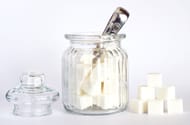Watery diarrhea or liquid poop can happen to anyone and is usually due to problems like food poisoning, bacterial infections or underlying medical concerns like irritable bowel syndrome.
While some cases of liquid bowel movement don’t require treatment, as they subside on their own, in cases where the problem is persistent or gets worse, immediate medical attention is necessary.
That's because it can lead to serious complications. In infants and children, particularly, the possibility of acute dehydration and other serious complications is high.
In this article, we have outlined some of the most common causes of watery stools. Knowing the causes will prevent this uncomfortable stomach problem and help you manage it efficiently.
Major causes of watery diarrhea
Here are some sudden causes of watery stool that you must know about:
Digestive problems

One of the most common causes of watery diarrhea is digestive disorders. Digestive problems like irritable bowel syndrome, celiac disease, Crohn’s disease, ulcerative colitis and other issues that affect the digestive system can all lead to watery stool and cause other problems as well.
These may include severe dehydration, fatigue, low blood pressure and more.
Infections

Viral infections and bacterial infections can cause watery diarrhea and lead to other uncomfortable symptoms as well.
Pathogens like viruses, parasites and bacteria can cause gastrointestinal infections and lead to problems like watery stool. Some examples of viruses and bacteria that can possibly lead to watery diarrhea include:
- norovirus
- rotavirus
- adenovirus
- salmonella
- E.coli
- shigella
- campylobacter
- cholera
People can get these infections from consuming contaminated foods and drinking water or by coming in contact with another individual’s sneezes or coughs.
You can also get these infections by coming in contact with contaminated surfaces and touching your mouth, nose or eyes.
Certain medications

Side effects from certain prescription and over-the-counter medications can also cause watery stool.
Some possible examples include antidepressants, antibiotics, chemotherapy medications, NSAIDs and medications used for the treatment of acid reflux like antacids.
Certain sweeteners and sugars

If you have difficulty digesting certain artificial sweeteners and sugars like fructose, chances are that you will get watery diarrhea. That’s because taking these sweeteners can trigger digestive problems and cause you to pass watery stool.
Surgery

Certain surgeries related to the gall bladder and stomach can possibly lead to post-operative watery diarrhea and cause acute problems.
That's why it's important to consult your doctor as soon as you experience any kind of stomach issue post-surgery.
Watery diarrhea treatment

The treatment for watery stool generally includes hydration and electrolyte balance in the body.
Symptoms like cramping and fatigue typically subside in a few days, but until then, you should make sure to keep your body properly hydrated by consuming lots of water and other healthy fluids.
You can also opt for over-the-counter medications to get relief from the symptoms fast. Limit physical exercise and most importantly, rest as much as possible, and avoid stress and anxiety.
Avoid these foods and drinks

When experiencing severe liquid bowel movement, avoiding certain foods and drinks can help, too.
Limiting the intake of the following foods and drinks can help you manage painful and uncomfortable symptoms:
- spicy and fried foods
- alcohol
- sugary drinks like shakes and packaged juices
- caffeine
- raw vegetables
- dairy products
- citrus fruits
If you have watery diarrhea along with symptoms like vomiting, trouble breathing, abdominal cramps, severe dehydration, lightheadedness and fatigue, seek immediate medical attention as soon as possible.
You should also see a healthcare provider if the problem lasts beyond a few days.
